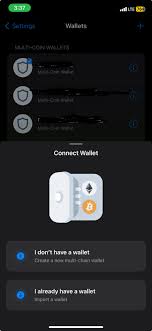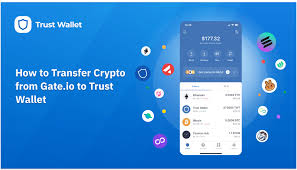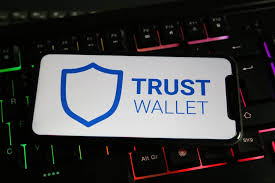
The best crypto wallet depends on your needs; Trust Wallet is great for mobile users, while hardware wallets offer enhanced security.
Comparison of Popular Crypto Wallets
How Does Trust Wallet Compare to Other Wallets?
Trust Wallet stands out due to its user-friendly interface, multi-cryptocurrency support, and decentralized nature.
-
Non-Custodial: Trust Wallet is a non-custodial wallet, giving users full control over their private keys, unlike exchanges that hold users’ funds.
-
Multi-Currency Support: Trust Wallet supports a wide variety of coins and tokens, including Ethereum-based ERC-20 tokens, Binance Smart Chain (BSC) tokens, and more.
-
dApp Integration: Trust Wallet offers seamless integration with decentralized apps (dApps) directly within the wallet, which many other wallets don’t provide.
-
Ease of Use: The wallet is designed for both beginners and experienced users, with straightforward navigation and setup.
What Are the Benefits of Using a Hardware Wallet?
Hardware wallets provide a higher level of security by storing private keys offline, making them less vulnerable to online attacks.
-
Offline Storage: Private keys are stored offline, reducing the risk of hacks or malware attacks.
-
Enhanced Security: Hardware wallets are considered one of the safest options for long-term storage, especially for large amounts of cryptocurrency.
-
Backup and Recovery: Most hardware wallets come with a recovery seed phrase, ensuring that users can restore their wallets if the device is lost or damaged.
-
Compatibility: Hardware wallets can support a wide range of cryptocurrencies, offering a secure option for managing various assets.

Trust Wallet Features
What Makes Trust Wallet a Great Choice?
Trust Wallet is a great choice due to:
-
Multi-Currency Support: Supports a wide range of cryptocurrencies and tokens.
-
Non-Custodial: You control your private keys and funds.
-
Decentralized: Seamless integration with dApps.
-
Security: Strong encryption, PIN protection, and backup options.
-
Staking Rewards: Stake assets directly in the app to earn rewards.
How User-Friendly Is Trust Wallet for Beginners?
Trust Wallet is beginner-friendly due to:
-
Simple Interface: Easy navigation and clear options.
-
Easy Setup: Quick wallet creation and secure backup process.
-
Backup Assistance: Simple recovery phrase to restore your wallet.
-
Support: Access to resources and customer support for help.

Security Features of Crypto Wallets
What Are the Security Features of Trust Wallet?
Trust Wallet offers several security features to protect your assets:
-
Private Key Control: You control your private keys, stored locally on your device.
-
PIN Protection: Set up a PIN to access the wallet and prevent unauthorized access.
-
Biometric Authentication: Use fingerprint or facial recognition for added security.
-
Backup and Recovery: A 12-word recovery phrase ensures you can restore your wallet if needed.
-
No Custodial Access: Trust Wallet does not store your private information or funds.
How Do Different Wallets Handle Private Keys?
Different wallets handle private keys in various ways:
-
Non-Custodial Wallets (like Trust Wallet): Private keys are stored locally on the user’s device, giving full control and responsibility to the user.
-
Custodial Wallets: These wallets store private keys on behalf of the user (e.g., exchanges), but users must trust the provider to keep the keys secure.
-
Hardware Wallets: Private keys are stored offline on a physical device, providing a high level of security against online threats.
-
Paper Wallets: Private keys are stored on paper, offering offline storage but requiring careful handling to avoid loss or damage.
Storing Cryptocurrencies
Which Wallet Supports the Most Cryptocurrencies?
Several wallets support a wide variety of cryptocurrencies, but Trust Wallet is one of the most versatile.
-
Trust Wallet: It supports over 1 million cryptocurrencies, including Bitcoin (BTC), Ethereum (ETH), Binance Coin (BNB), and ERC-20, BEP-2, and BEP-20 tokens.
-
Exodus and Atomic Wallets: These also support a large selection of cryptocurrencies but are not as extensive as Trust Wallet in terms of token types.
-
Hardware Wallets: While secure, hardware wallets like Ledger and Trezor support many but not as many tokens as Trust Wallet.
Can Trust Wallet Store All Types of Tokens?
Trust Wallet supports a wide range of tokens across multiple blockchains.
-
Ethereum-based Tokens (ERC-20): Trust Wallet can store all Ethereum-based tokens, such as USDT, DAI, and LINK.
-
Binance Smart Chain Tokens (BEP-20): Trust Wallet fully supports tokens on the Binance Smart Chain, including BNB and other BEP-20 tokens.
-
Other Blockchains: Trust Wallet supports coins and tokens from multiple blockchains like Solana, Tron, and Litecoin, making it highly versatile.
-
NFTs: Trust Wallet can also store NFTs (ERC-721 and ERC-1155 tokens), providing additional value for users.

Wallet Fees and Costs
Are There Fees for Using Trust Wallet?
Trust Wallet itself does not charge fees for using the wallet, but there may be transaction-related fees:
-
Network Fees: When sending or receiving cryptocurrencies, network fees (gas fees) are applied, depending on the blockchain (e.g., Ethereum, Binance Smart Chain).
-
Third-Party Services: If you use third-party services (like exchanges or DeFi platforms) through Trust Wallet, additional fees may apply depending on the service.
How Do Transaction Fees Vary Between Wallets?
Transaction fees can vary based on the wallet and blockchain network being used:
-
Non-Custodial Wallets (like Trust Wallet): Typically, only network fees apply. These can vary by the blockchain (e.g., higher fees on Ethereum compared to Binance Smart Chain).
-
Custodial Wallets: Fees may include trading fees, withdrawal fees, or hidden costs, as these wallets control user funds.
-
Hardware Wallets: While they don’t have direct transaction fees, users may incur higher network fees when interacting with platforms.
-
dApp/DEX Fees: When using decentralized apps or decentralized exchanges (DEXs), you might pay additional liquidity provider fees or swap fees on top of network fees.

Wallet Compatibility with dApps
How Does Trust Wallet Integrate with dApps?
Trust Wallet integrates with decentralized applications (dApps) through its built-in dApp browser, allowing users to seamlessly interact with DeFi platforms, NFT marketplaces, and other decentralized services.
-
Direct dApp Access: The dApp browser enables users to directly access supported dApps from within Trust Wallet, eliminating the need for third-party apps or browsers.
-
Transaction Signing: Trust Wallet allows users to approve and sign transactions securely within dApps, ensuring full control over their funds.
-
Blockchain Interactions: You can interact with multiple blockchains (e.g., Ethereum, Binance Smart Chain) and their corresponding dApps without leaving Trust Wallet.
Which Other Wallets Offer dApp Support?
Several other wallets also offer dApp integration, providing similar functionality to Trust Wallet:
-
MetaMask: A widely used wallet for Ethereum and ERC-20 tokens, with a strong dApp browser for interacting with decentralized platforms.
-
Coinbase Wallet: Supports Ethereum and other assets, with dApp browser functionality for interacting with decentralized services.
-
Exodus: While focused on user-friendly design, Exodus also integrates with some dApps, particularly for trading and DeFi activities.
-
Ledger Live: While primarily a hardware wallet, Ledger supports dApp access when connected to its hardware via third-party services.

Mobile and Desktop Access
Can I Use Trust Wallet on Both Mobile and Desktop?
Trust Wallet is primarily a mobile wallet, available for both Android and iOS devices. However, it does not have an official desktop version.
-
Mobile Access: Trust Wallet is fully optimized for mobile devices, offering easy access to cryptocurrencies and dApps through its app.
-
Desktop Use: While Trust Wallet does not offer a native desktop application, you can access dApps via a mobile browser or use a browser extension for interacting with decentralized apps on a desktop.
How Does Trust Wallet Compare to Desktop Wallets?
Trust Wallet and desktop wallets have different strengths and use cases:
-
Mobile-First: Trust Wallet is designed for mobile use, allowing for easy access on-the-go, whereas desktop wallets are typically used for more extended interactions.
-
Security: Desktop wallets like Exodus or Electrum are often considered more secure for large amounts of crypto since they are less susceptible to mobile vulnerabilities, such as app-related malware.
-
Convenience: Trust Wallet excels in convenience and accessibility, especially for users who prefer to manage their crypto on mobile devices, while desktop wallets provide a more robust interface for managing complex portfolios.
-
dApp Integration: Trust Wallet’s integration with dApps is smoother on mobile, whereas desktop wallets may require additional setup or third-party integrations for dApp access.
What is the most secure crypto wallet?
Hardware wallets, like Ledger or Trezor, are the most secure, as they store private keys offline, protecting against hacks.
Is Trust Wallet a good option?
Yes, Trust Wallet is a great choice for beginners, supporting a wide range of cryptocurrencies and offering easy access to dApps.
Which wallet supports the most cryptocurrencies?
Trust Wallet supports over 1 million cryptocurrencies, including Bitcoin, Ethereum, and Binance Coin, making it highly versatile.
Leave a Reply